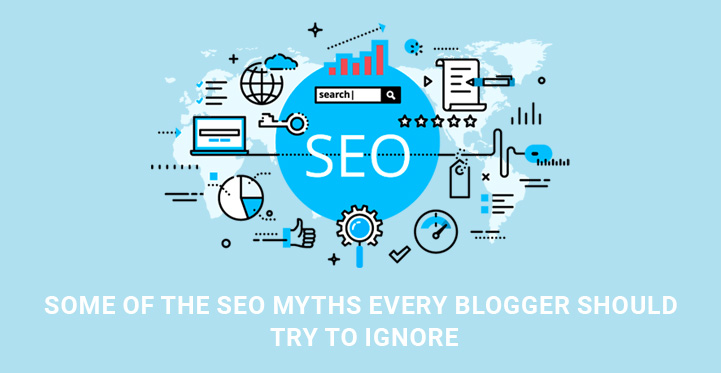During the recent years a lot of methods and techniques have been used, but some of them aren’t much help and there are some of the SEO myths every blogger should try to ignore.
Table of Contents
SEO or search engine optimization is the process of affecting the visibility of a website or a web page in a web search engine’s unpaid results, often referred to as “natural”, “organic”, or “earned” results.
In general, the earlier (or higher ranked on the search results page), and more frequently a site appears in the search results list, the more visitors it will receive from the search engine’s users; these visitors can then be converted into customers.
It has two major functions: crawling and building an index, and providing search users with a ranked list of the websites they’ve determined are the most relevant.
Search Engines then use formulas to analyze huge amounts of data about all the web pages they can find in order to determine which web pages they should present when someone searches for a keyword phrase, and in what order they should present them.
Here are some of the SEO myths every blogger should try to ignore:
Myth 1: Google changes rules every time
Sure, Google does change its algorithm countless times a year. And, they introduce bigger changes all the time knocking many off their perch.
Yes, Google, as well as all popular platforms, change algorithms and ways they crawl and index you content and that’s a fact. But there is another fact: the changes will not affect your ranking if your SEO is done in the right way.
The following tricks won’t pass with Google and you better avoid them.
- too many links from spammy sites
- too many keywords in your posts
- blog posts that are just not worth anyone’s time
However, if you stick to the following simple rules, you are always good to go:
- Only use your keywords 4/5 times (only)
- Write the best piece of content you can on your chosen topic
- Get links from quality websites in your niche
Myth 2: Short Content does not rank
Everybody knows the popular rule: poor content poor ranking, high quality content high ranking. So you need to be sure that your content is informational, user friendly, interesting and well written.
But there are certain text criteria that should be followed. Though some bloggers argue that perfect article length is just 200 words and other say that the minimum number of words should be 800 and maximum 1200, the length of the text does not matter IF your SEO and blog are done right.
Sure, if two blog posts as well as articles or web pages are written about the same topic one short; the other long — and a user makes a relevant google search to that subject matter, Google will likely suggest the longer, in depth content over the short form content.
Short posts do not provide you with high ranking just as a 4000 word article don’t. Quality of the content is what really matters.
Just because you’ve written more content doesn’t mean Google forgives you for non professional research and subject matter. It’s not the length of content that counts, it’s how it’s written.
Myth 3: Keywords are no longer relevant
There are places and we call them key places, where keywords are important:
- The URL
- The title of the post
- The main heading
- The first paragraph (or 100 words)
- Once more in the content (a variation if possible)
These are the main places that will help your blog be ranked.
Meta tags are as well quite important. A meta tag is a tag (that is, a coding statement) in the Hypertext Markup Language (HTML) that describes some aspect of the contents of a Web page.
The information that you provide in a meta tag is used by search engines to index a page so that someone searching for the kind of information the page contains will be able to find it.
There are several kinds of meta tags, but the most important for search engine indexing are the keywords meta tag and the description meta tag.
There has been a lot of debate in the SEO world about the impact of meta keyword tags, especially after Google launched Hummingbird in 2013. So this is also one of the SEO myths every blogger should try to ignore.
Related Post: What Features Do The Best Keyword Research Tools Offer?
Meta tags will also make your search results winning, which will attract more clicks from search engine users feeling your website has the high quality content filling their need.
You can control the meta keyword phrases, title tags and descriptions with the All In One SEO WordPress plugin.
Use All in One SEO Pack to optimize your WordPress site for SEO. It’s easy and works out of the box for beginners, and has advanced features and an API for developers. First created in 2007, see why AIOSEO is one of the all time most downloaded plugins for WordPress.

